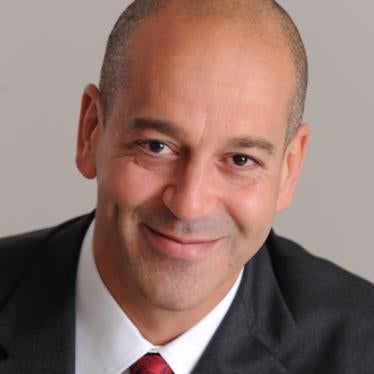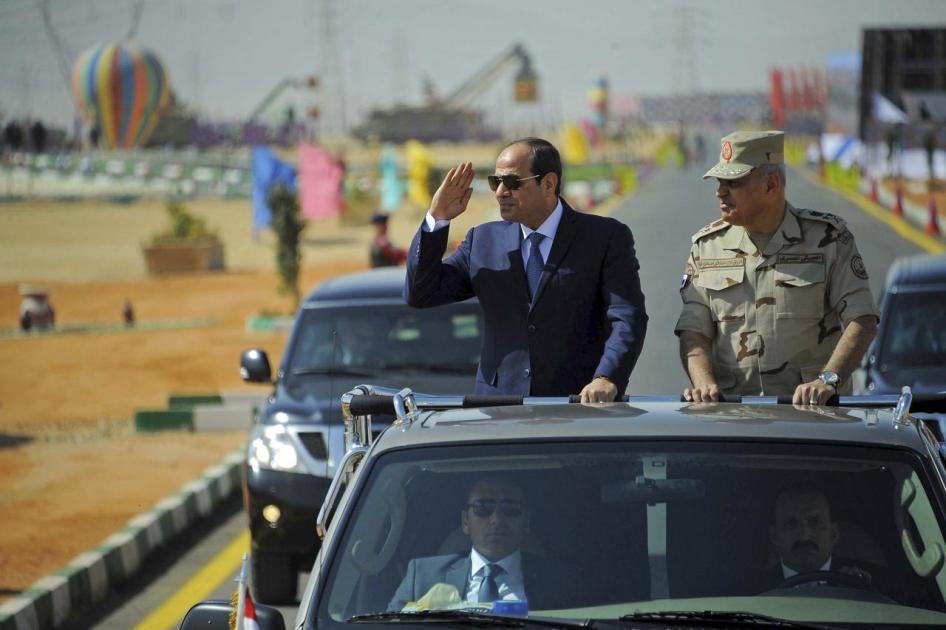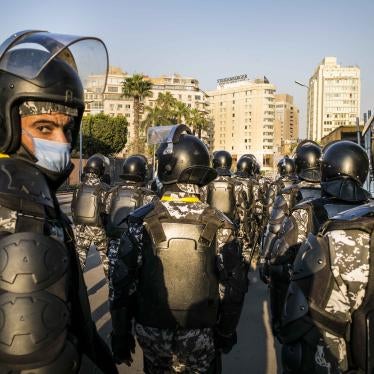The brave people who work to protect Egyptians from abuse are under aggressive and accelerating attack. The attackers come from the government, its proxies in the media, its security forces, and even elements of the supposedly independent judiciary. The goal is to neutralize the country’s human rights movement, creating an environment where Egypt’s leaders govern without accountability and where security forces abuse Egyptians with impunity.
This robs Egyptians of their right to hold their government accountable. It also fosters debilitating corruption and erodes the stability needed to encourage private sector investment.
I am proud of my Egyptian heritage. I’ve also served as a member of the board of directors of Human Rights Watch for the past twelve years, and as co-chair of the board for the past six years. At this dangerous and critical moment for human rights in Egypt, I feel that I must respond.
Compared with the Egyptian human rights defenders who face prosecution and prison, Human Rights Watch has it relatively easy. We merely endure regular attacks on our reputation and efforts to prevent our representatives from entering the country. But recently, pro-government media smear campaigns have intensified and, more dangerously, are labelling human rights organizations and defenders as “terrorists”.
One such journalist, a favorite of President Abdul Fattah al-Sisi, called for the “execution” of our staff member Amr Magdi for the “crime” of co-authoring a report on government and ISIS abuses in Sinai. This is shameful incitement against a patriotic person doing good work on behalf of fellow Egyptians.
The government’s cynical strategy, aimed at sowing doubt about the motives of the entire human rights movement, affects all of us. Their strategy is built on the lie that human rights are alien to Egypt, and that those who promote these rights represent a nefarious “foreign agenda.”
Of course, nothing could be further from the truth. Egypt’s human rights movement has a long and patriotic history stretching back to the country’s fight for independence. Local groups such as the Egyptian Organization for Human Rights and the Nadim Center for the Rehabilitation of Victims of Violence and Torture have been working in Egypt for just as long, and in some cases longer, than Human Rights Watch.
There is nothing wrong or unpatriotic about their work. Quite the opposite: Egypt’s own constitution guarantees that civil society can exist free of onerous government interference. So do the international treaties signed by Egypt and hundreds of other countries. Nevertheless, Egyptian authorities twist vague laws to use against these organizations and undermine these protections.
For example, in February 2017 government authorities shut down the headquarters of the Nadim Center, which provided crucial treatment for victims of torture, because the center’s reports documenting and criticizing torture allegedly violated the terms of its license. The Nadim Center is one of dozens of Egyptian groups currently facing investigation for allegedly receiving illegal foreign funding, a crime which President al-Sisi has made punishable by 25 years in prison.
In recent years, several Egyptians whose supposed “crime” is advocating for the rights of citizens have faced endless prosecution, been charged and released on bail. They now live in fear of prison after the government banned them from traveling and froze the assets of some.
It’s interesting that the government has chosen to attach such severe penalties to foreign funding, since the Egyptian government itself receives so many billions of dollars from Saudi Arabia, the United Arab Emirates, the United States, European Union member states, and others.
No, I don’t think the government really cares about foreign funding. Rather, it selectively and cynically uses the issue to sow fear and create suspicion to serve its own purposes.
The truth is that most of us want the same things. We want jobs, a place to live, and a way to feed our families. We want to be treated fairly, and we want our government to respect our rights and treat us with dignity. How then can the NGOs that advocate these things be illegal?
The government-sponsored critics of Human Rights Watch rarely if ever challenge the facts in our reports because they cannot—the facts are solid. Instead, they claim that we pick on Egypt unfairly.
But if you need evidence of our independence, simply see our criticisms of the United States, or Israel, Turkey or France, or any other country.
Egypt is not a special case: We work in close to 100 countries around the world with the same goal. Our role is to point out what is going wrong and to offer potential solutions. That is why each Human Rights Watch report comes with recommendations for the government about how to improve the situation.
When we make mistakes, we issue corrections. When we receive new information or new responses from the Egyptian government, we reflect them. But despite our continual efforts to request meetings and solicit responses, the government refuses to open channels for genuine communication and discussion.
Why then do they attack the messenger?
It is far easier for the government to attack and punish human rights defenders than to explain what it is doing to address its obligations to its citizens and to openly investigate abuses. Questioning the motives of the Egyptian human rights movement is a useful way to deflect attention from the evidence in our reports without stopping the abuse. In other words, it is an easy way of avoiding the truth.
But it is not a solution for Egyptians.









